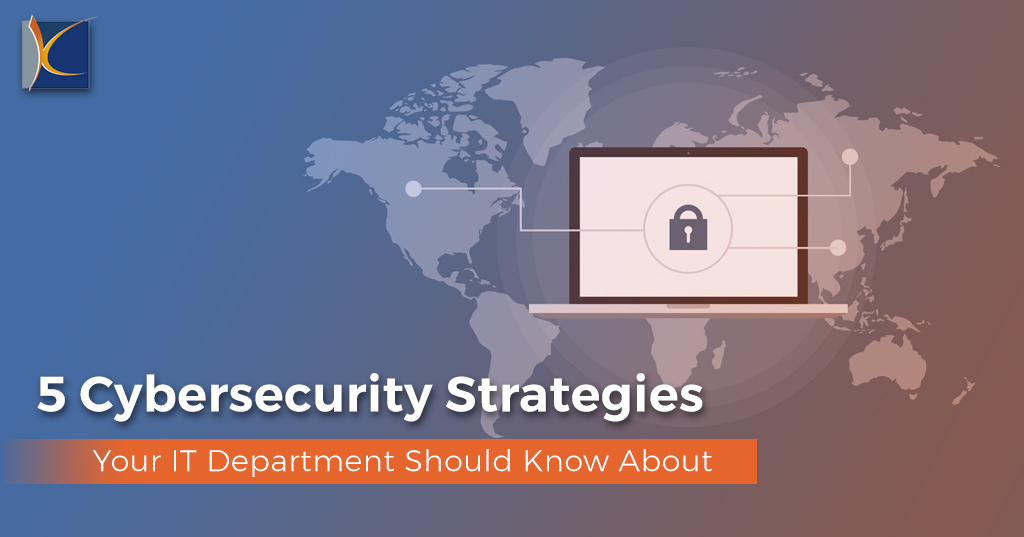
5-cybersecurity-strategies-your-it-department-should-know-about
5 Cybersecurity Strategies Your IT Department Should Know About
Posted on June 6, 2018 in Uncategorized
When it comes to protecting your company’s digital assets, fewer decisions are more important than the adoption of new cybersecurity measures. Today, one out of five small businesses is affected by cyber crimes in one way or another. Even more worrying than this statistic is the fact that 60% of these businesses are shut down within six months of being attacked.
So what can businesses do to ensure they’re better equipped to withstand these attacks? Here are five cybersecurity strategies that your IT department can start to implement right now.
Deploy Firewalls and Network Segmentation
An unfiltered infrastructure can present itself as an easy target for cybercriminals. Firewalls tend to be the first and foremost line of defense against outside cyber attacks. IT teams can deploy and configure these digital walls to strike a balance between protection and usability on internal systems.
Another useful measure of protection is to segment networks into smaller subnetworks. These protective measures ensure that your company data is not stored in one central location. By splitting each computer network into several smaller ones that have the same level of cyber security, hackers have to work much harder to reach the same goal before they’re noticed and countered by your system.
Set Company User Access Controls
As your organization begins to scale, it’s essential that employee access is limited to specific role allocations. Having open access to all areas of your network makes it much harder to recognize unauthorized access from hackers. Assigning licenses and user-restrictions to your system enable you to allow or deny access to specific areas of your
system.
By having fewer people with access to sensitive areas of your operations, the less likely there will be any data leakage. By creating these role-restrictions, it will also be easy to ensure former employees don’t have access to systems once their employment has ended.
Audit Systems and Introduce Security Patches
Hackers tend to look for weaknesses in systems typically identified by outdated software and old firmware versions. IT teams should always ensure their systems maintain the latest security patches and upgrades. System patches help recognize open areas of your network that might be susceptible to attacks and enable your team to address the issues.
There are also many auto-updating systems that will automatically alert you once a new patch is available for your system. These systems can be configured to automatically download and install the latest versions of software protection, ensuring you don’t risk operating one moment without the most up-to-date protection.
Train Employees on Cyber Threat Awareness
Most companies feel like cybersecurity measures should be limited to an IT department and not involve employees in other areas of the company. However, most security breaches are caused by employees who inadvertently open malicious emails or download virus-containing files without adequately vetting the source.
By implementing a cybersecurity training schedule for all employees, organizations can ensure they significantly minimize the risk of unauthorized system access and data breaches. Cybersecurity best practices should be discussed at the outset of employment and standards should be adhered to at all times.
Create a Disaster Recovery Plan
If a system does become compromised, it’s imperative that a company is prepared to quickly bounce back and repair the damage that’s been done. Disaster recovery plans are an essential part of a company’s ability to contain cyber attacks, restore systems, and recover any lost data.
By developing a recovery plan ahead of time, you can assign appropriate personnel and procedures to get your systems back up and running efficiently and repair any damage that has been done.
Developing and executing cybersecurity measures is an integral part of scaling and sustaining your business. By staying up-to-date with the latest cyber threats and setting up appropriate defenses, you can ensure your systems stay operational and that your digital assets are always protected.










